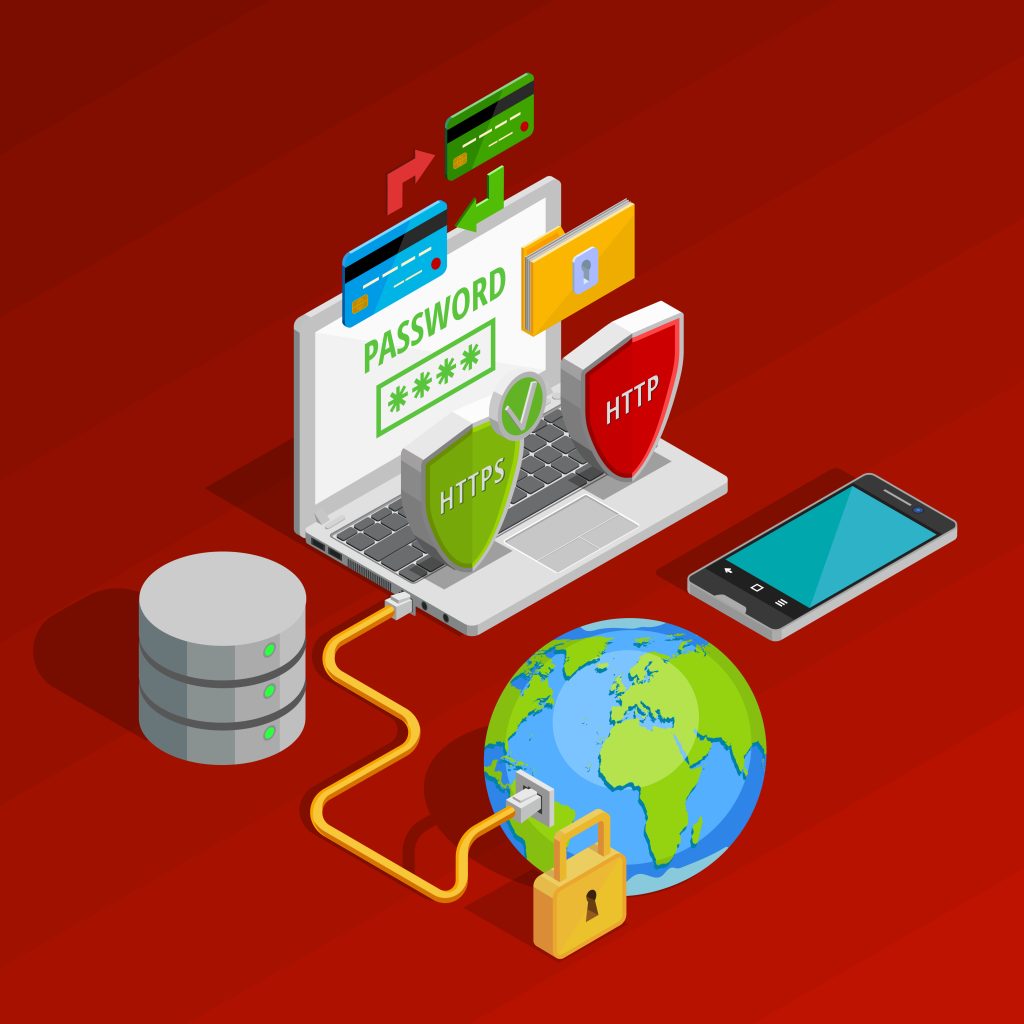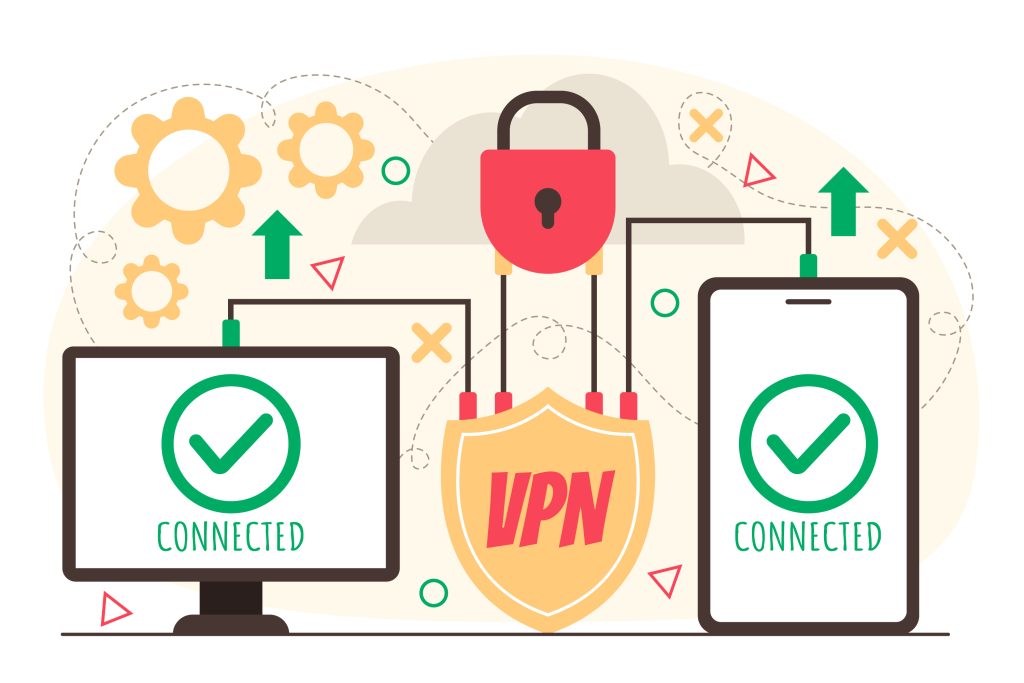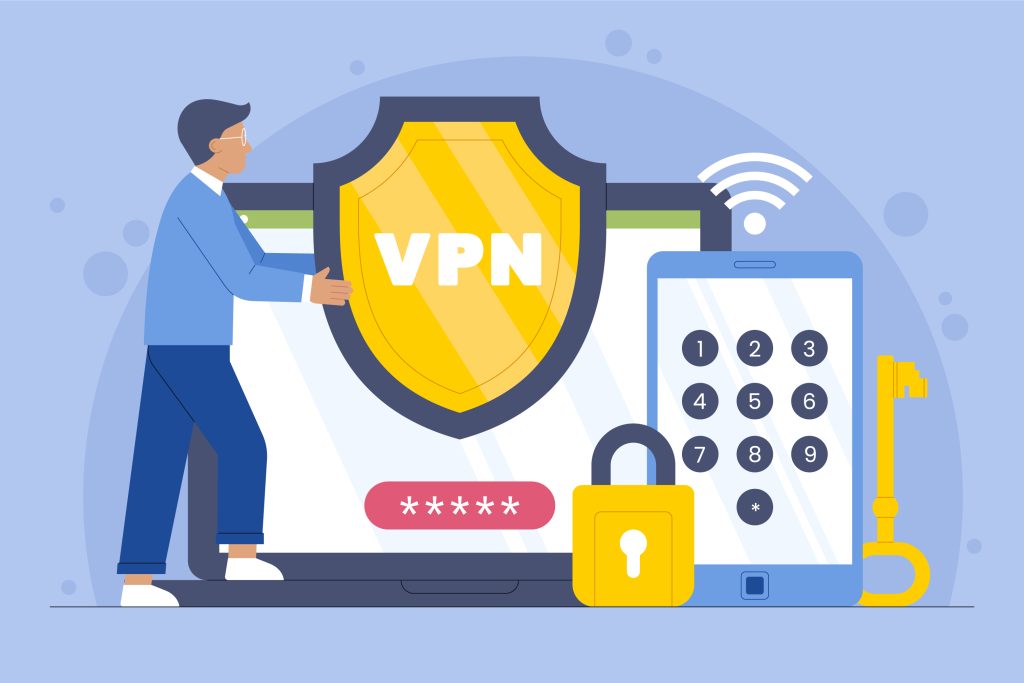
VPN and proxy are needed to protect personal information, privacy of actions on the Internet. Both services are needed to mask IP addresses of users by redirecting traffic through a remote server.
What you need to know when comparing proxy and VPN. The difference between them is not only that one encrypts data only in one application, while the other encrypts the entire traffic of the operating system. A VPN is more functional because it guarantees full encryption of traffic in a tunnel connection. A proxy has no such feature.
The advantage of a VPN is that it directs the user’s traffic into an encrypted tunnel, thus guaranteeing the privacy of the user’s Internet activity. The technical capabilities of a proxy are not enough for secure access to online content. Is this the only difference between proxies and VPNs? Are these tools interchangeable? Does a user need both services or is one service enough? The publication answers questions on the topic of proxy server vs VPN – pros and cons, what to choose and why.
What is a proxy server?
In fact, it is a relay between a website and a digital device with Internet access. Connection to the host server of the web resource is mediated by it. As a result, the site does not read the original IP address of the visitor, but only fixes the coordinates of the proxy. The peculiarity of the tool’s work is that it redirects the traffic of only the application with which the proxy interacts. This is the difference between proxy and VPN – the absence of total encryption of traffic.
There are three types of such servers. What are their differences:
- HTTP web page proxy allows 100% of the traffic of the browser to which it is connected to pass through;
- SOCKS works with applications, handling all types of traffic (from web page loading to email, application updates, cloud storage usage);
- “transparent proxies” discreetly filter and block Internet access.
The latter is useful for parents who want to keep their child away from unwanted content. Hotels use it to provide access to public Wi-Fi only to guests, and companies use it to save traffic and working time. Which is better and more effective – VPN or proxy? You should consult with experts who offer fast mobile proxies.
How do proxy servers work?
The word “proxy” means representative, intermediary. A remote proxy server serves as an auxiliary link in the chain connecting a mobile application with the Internet. Its task is to spoof the user’s IP address. As a result, the site fixes the IP address of the intermediary server, which allows a person to veil online activity, hide information about himself.
Why is a proxy different from a VPN? It works as a program that redirects activity only in the application or program in which it is installed. It does not have the function of encrypting all the traffic of the device’s operating system. You can use an online proxy checker to check if your proxy server is working properly.
Request redirection
This is the name of a server accepting a POST request from a client with a redirect to another server or URL. The function is used by:
- when processing requests on another resource;
- to move sensitive data to another server with maximum protection;
- to redistribute the load between servers.
The ability to redirect POST requests to another server increases the reliability of data storage and privacy of the site.
Typical usage scenarios
The scheme of interaction with a direct proxy server consists of 4 steps:
- a web request from the application goes to the proxy server with which it is associated;
- the proxy server changes the user’s IP address to its own;
- the request with the changed IP address is transmitted to the application server;
- the request after processing goes to the proxy server and from it returns to the user’s IP address.
This allows the user to remain incognito when using applications.
The task of an intermediate reverse proxy server is to monitor and intercept incoming Internet traffic until it reaches the application servers and users. With its help:
- scan visitor traffic;
- examine unauthorized activity;
- block certain sources of traffic.
It is indispensable in providing anonymity and security online.
What is a VPN?
The abbreviation for Virtual Private Network (VPN) is a service for encrypting traffic and guaranteeing security on the network. What is the difference between a VPN and a proxy? It creates a secure channel connecting visitors to websites and online services. The traffic in it is encrypted in real time in a dedicated tunnel. The processed data is inaccessible to hackers, government agencies, internet service providers. VPN guarantees security, anonymity, confidentiality of users’ web activity.
What is the difference between a VPN and a proxy?
You need the first tool to protect your traffic and the second one to protect your browser. Why? Let’s assume that there is an intermediate link between the application (website) and the user’s digital device – another computer or server, i.e. a proxy. Its IP address is seen by websites and pages opened by the user. Free proxy servers should be used with caution, as they often become sources of malware.
If we compare proxy and VPN – how big is the difference between them? Yes, there are differences and quite a few. A VPN not only hides the actual IP address of the user like a proxy. The service provides:
- protection from activity tracking by any third-party organizations and individuals;
- secure transmission of sensitive information;
- operating system-wide, handling all Internet traffic, not just a single application, site or program;
- reliable, uninterrupted connectivity.
Now I understand the difference between proxies and VPNs. Another question arises – how safe is it to use freely available VPNs? To create a secure connection between two servers, it is better to use a proven service like openvpn server Windows.

Pros and cons of VPNs and proxies
When comparing online services, the pros and cons of VPNs and proxies become apparent:
Protection of personal data, confidentiality of browsing history. VPN performs full encryption of all Internet traffic with its transmission through a secure tunnel connection without access by third parties, including the provider. Proxy provides only anonymity when working with a particular site, system, application.
Bypassing any blockages. Due to geolocation, not all websites are available to the user. VPN allows you to bypass the ban. Unlike proxies, it guarantees connection to the necessary web resources anywhere in the world.
Secure encryption of information. Using free public Wi-Fi networks in airports, hotels, restaurants is not safe from the point of view of personal data leakage. You should connect to such networks only via VPN. A proxy server has no such capabilities.
Saving money when shopping online. Marketplaces artificially set higher prices for buyers from some countries. With the help of VPN you can “convince” the marketplace that the user is in a region of high loyalty, and buy things cheaper.
Security of going online from mobile devices. To protect your data privacy and online activity, you should install a VPN on all gadgets, including gaming consoles.
It is recommended to use paid VPNs for total protection against hackers, malware, and personal data leakage. The disadvantages of free programs are the abundance of advertisements and the risk of receiving malicious files.
Because of the encryption of information in real time, VPN reduces the speed of the Internet. You will have to consult with specialists to increase it.

What to choose: proxy or VPN?
The difference between VPNs and proxy servers allows you to make a choice depending on the task at hand.
Selection depending on the task
This publication describes in detail how a VPN differs from a proxy. If you need total protection and traffic encryption at the operating system level, you should choose a VPN. It does not matter whether it is caused by the desire to hide one’s private life in the network, to protect corporate information and financial flows. Each user will decide what is better, what to choose – a paid or free option for encrypting web traffic.
Financial aspects of the choice
The cost of paid proxies and VPNs is not so great to save on information protection. You should:
- decide which service to choose: VPN or proxy;
- study the functionality of paid and free services;
- find a company that provides such a service on a paid basis.
LTESocks is at your service.
Why is a proxy different from a VPN?
It has fewer features. It hides IP address, but does not encrypt data and does not transmit traffic through a secure tunnel connection. The service is focused on the traffic of one application or website. Unlike proxy VPN protects and encrypts all traffic passing through the operating system of a PC, laptop, or device, and not only masks the IP address.
Conclusion
The difference in using the two services, their pros and cons are obvious. VPN, despite its similarity to a proxy, is functionally much more efficient. A user who values security, total protection of information and confidentiality of his online activity is recommended to access the Internet through paid versions of VPN.









